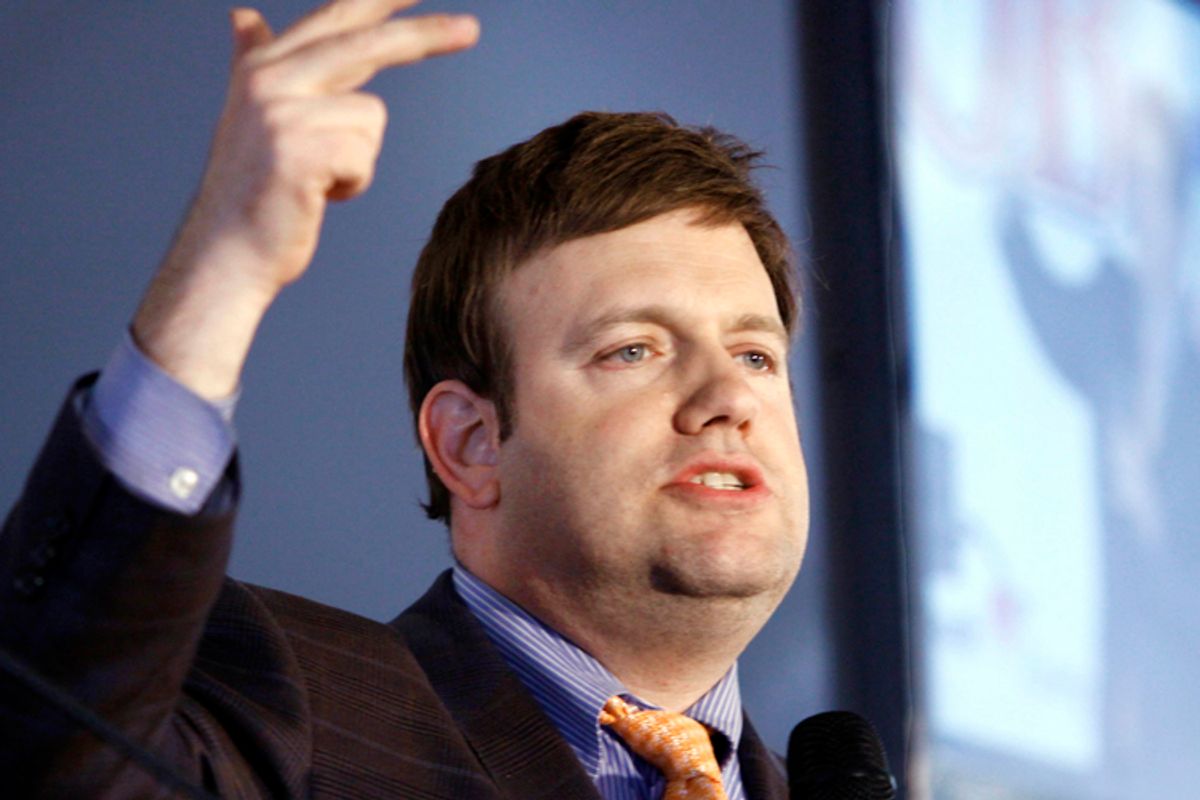All right, here we go: Day 2 of the media’s post-election bacchanalia of hot takes and sweeping conclusions is in full swing, and the usual suspects are reciting from their usual scripts.
Ron Fournier, that implacable tribune of Beltway centrism, writes that the midterm results were a “repudiation of … status-quo politics,” then urges the president to respond by firing some of his staff (considering most Americans not only know who Denis McDonough is but consider him to be History’s Greatest Monster, this is definitely good advice). The Nation’s Katrina vanden Heuvel, meanwhile, advises Obama to respond to the results with more center-left cowbell — or, as she regrettably puts it, by “doubling down.” And conservative pundits, who are nothing if not consistent, tell us that the president’s only hope is a public act of hara-kiri. “Same as it ever was,” as a wise man once said.
But amid the downpour of opinion pieces that could easily have been written before the first results came in, there has been something of a surprise, albeit not a particularly welcome one. Frank Luntz, the messaging guru responsible for outstanding achievement in the field of bullshit, has written a “what does it all mean?” Op-Ed for the New York Times; and it’s one that so perfectly encapsulates how elite conventional wisdom impedes reform, I’m almost inclined to thank him for it — before I remember that he’s an unethical grifter whose life, according to this report, is like an endless screening of “Up in the Air,” but without George Clooney or the jokes.
For the most part, Luntz’s Op-Ed is composed of clichés and platitudes, the kind of stuff people who spend their lives flitting from one cable news green room to another say when they want to sound magisterial and smart. The Real Americans out there, Luntz informs us, think “Washington is broken and on the decline.” They want to “change the way Washington operates.” They desire “common-sense solutions” and “leadership that brings us together.” As a matter of fact, going off of the results of “a survey [his] firm fielded on election night,” the millionaire consultant is able to share with Times readers that most Americans prefer it when the things that happen are good, instead of bad (OK, I made this one up).
But what’s striking about Luntz’s piece, what makes it a valuable example of how the banality of the Very Serious People is an out-and-out enemy of substantial reform, is the way it actually touches on the real threats to American democracy before advocating for a series of policy responses that will only make things worse. For example, Luntz at one point notes that when Americans say Washington isn’t working, what they usually mean is that “government no longer works for them — only for the rich and powerful.” Moreover, Luntz (who was not part of the Romney 2012 campaign, by the way) is nonpartisan enough to acknowledge that interpreting the midterm results as being all about President Obama, as many pundits have done, “misses the mark.” It’s the whole damn system that Americans are rejecting, Luntz suggests, either by voting to throw the bums out — or not voting at all.
Yet although Luntz’s decision to look at the big picture instead of the horserace is welcome, it’s also insufficient. And its limits are made all too clear by the end of the article, when Luntz tells us what we should do next. After arguing that Americans see their government as plutocratic, dysfunctional, indifferent and corrupt, Luntz doesn’t recommend any major structural changes. He doesn’t suggest any reforms to campaign finance, labor law, voting rules or Wall Street regulation — even though these are ideas being tossed around not only by wonks on the left but also policy thinkers on the right. Pushing through free trade agreements, sidelining questions of reproductive and LGBTQ rights, reducing the (already cascading) deficit; this is Luntz’s program. It’s also the Chamber of Commerce’s wish list. It is not, in any real sense of the word, reform.
And that’s the danger of the Luntz maneuver, which I fully expect us to see more of in the future, from both his fellow Republicans as well as from those members of the elite who fancy themselves guardians of the political center. The first step is to acknowledge, in a way not done by Serious People until very recently, that the problems with the American system go beyond those clowns in Congress being a bunch of clowns. Then, after you’ve won a measure of trust from your audience by gesturing that you hear them, just like the president, you go ahead and push all the same giveaways to the 1 percent that you did before, but rebrand them as if they were responses to our current terrible state.
When it comes to a hired-gun like Frank Luntz, the chances that this is a conscious act of deception are high, indeed. But for the slew of moderate and Very Serious Pundits who are already singing the same tune, the intellectual antimatter of pro-corporate conventional wisdom is the more likely culprit. Still, whether the disconnect between the diagnosis and the prescription is due to menace or Arendtian banality ultimately makes little difference — it’s a major obstacle for those interested in saving the promise of American democracy all the same.

Shares